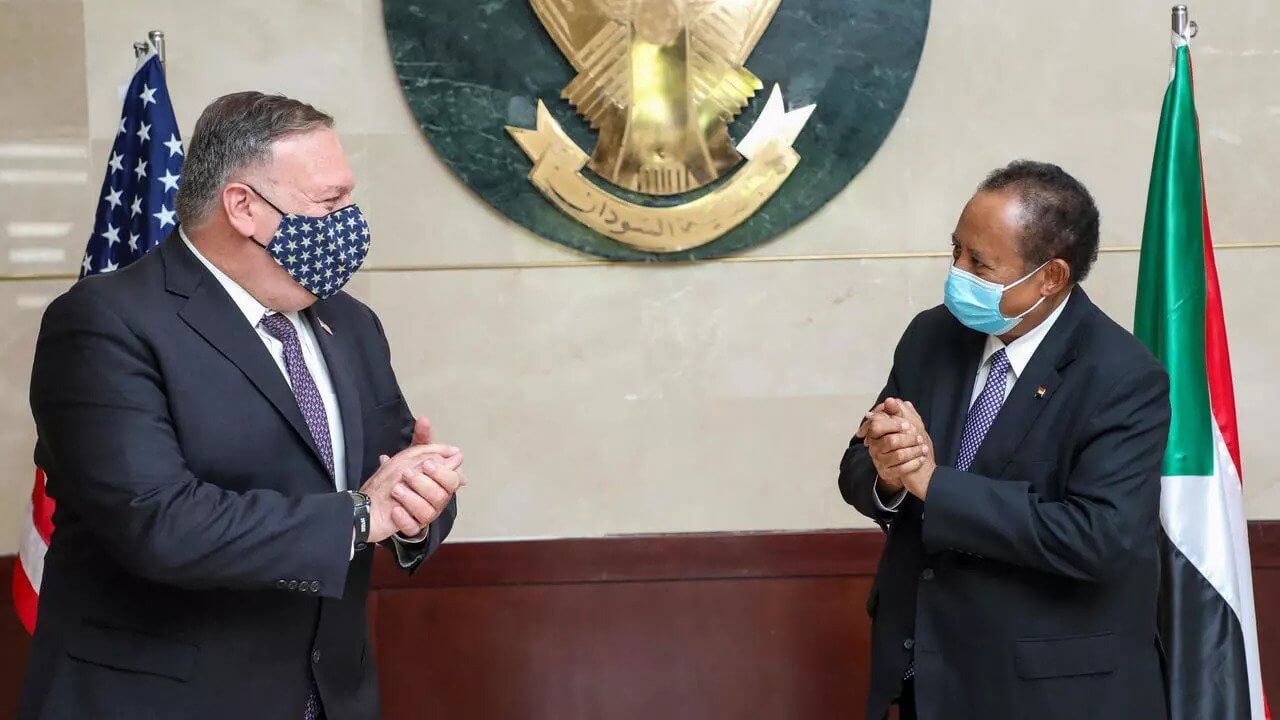US Secretary of State Mike Pompeo met with Sudanese Prime Minister Abdalla Hamdok in Sudan on Tuesday to discuss Khartoum’s transition to democracy and efforts to remove the country from the State Sponsors of Terrorism list.
The country has been blacklisted by the US since 1993 over allegations that ex-President Omar al-Bashir’s government was harboring members of al-Qaeda—most notably Osama Bin Laden—and other extremist groups. Bashir was overthrown last year after a 30-year reign, and PM Hamdok’s transitional government has sought to be delisted so that sanctions can be lifted and outside investment and aid can be procured to help the country’s ailing economy, which would also help restore Sudan’s standing in the international community.
In order to be removed from the US list, America has demanded that Sudan agree to pay a compensation of almost $335 million to families of victims of terrorist attacks—which include both American citizens and foreign nationals—that the former Sudanese regime played a role in supporting two decades ago. Though the prospect of such a large payment from an already poverty-stricken country drew criticism from Sudanese opposition leaders and activists, Sudan agreed to American demands in February. Sudan has also asked the US Congress to grant the country immunity against future lawsuits stemming from past terrorist incidents.
During the talks on Tuesday, Pompeo also urged Sudan to establish ties with Israel. However, according to a statement by government spokesman Faisal Saleh, Hamdok clarified to Pompeo that the country’s 39-month transitional period “is being led by a wide alliance with a specific agenda - to complete the transition, achieve peace and stability in the country and hold free elections” and that “it does not have a mandate beyond these tasks or to decide on normalization with Israel”. Saleh added that Hamdok “called on the US administration to separate the process of removing Sudan from the list of states sponsoring terrorism and the issue of normalization with Israel”.
Pompeo was in Israel the previous day as the first stop on a regional tour aimed at convincing more Arab countries to establish full diplomatic ties with the Jewish state. After his meetings in Sudan, Pompeo flew to Bahrain. The Trump administration is also expected to send another high-level delegation to Israel next week to undertake a journey with Israeli officials on the first commercial flight between Tel Aviv and Abu Dhabi. The delegations are expected to discuss avenues for cooperation in the aviation, security, banking, and health sectors, as outlined in the agreement that the countries announced two weeks ago.
US, Sudan Discuss Khartoum’s Removal From Terrorism List
Sudan has been blacklisted by the US since 1993.
August 26, 2020

US Secretary of State Mike Pompeo and Sudanese Prime Minister Abdalla Hamdok. SOURCE: BBC
